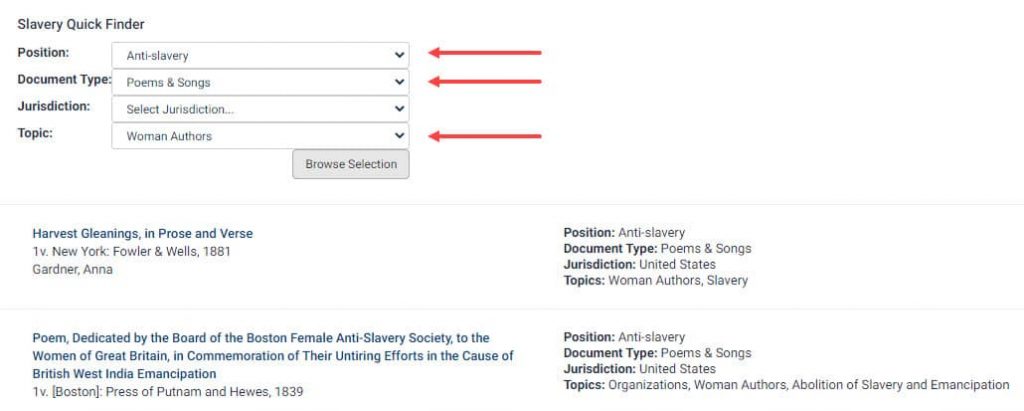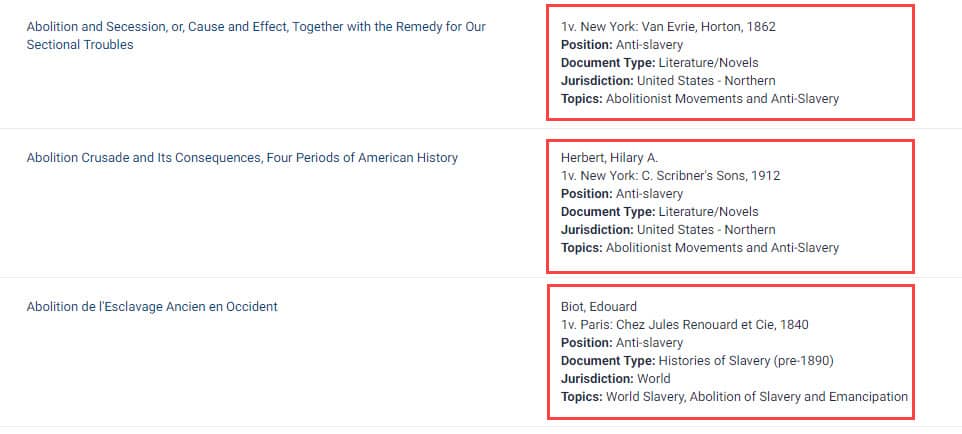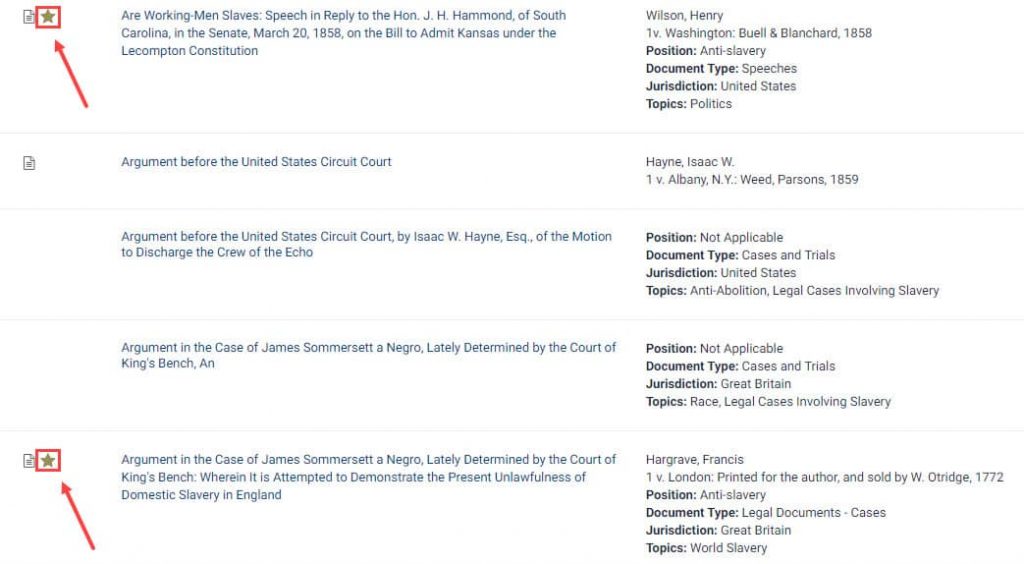Slavery in America and the World: History, Culture, and Law brings together a multitude of essential legal materials on slavery in the United States and the English-speaking world. It’s one of HeinOnline’s four perpetually free databases which together comprise the Social Justice Suite—a free-to-access research package intended to facilitate civil discourse.
The Slavery in America and the World database is particularly special because of the meticulous development and organization that went into its development, opening up opportunities for unique browse and search tools. Learn how to use these tools in this guide.
The Slavery Quick Finder Tool
Each book and pamphlet within the collection has been categorized by an editorial team based on four factors:
- Position on Slavery (pro-slavery or anti-slavery, for example)
- Type of Document (cases, trials, letters, sermons, speeches, etc.)
- Jurisdiction
- Topic (examples include “Abolitionist Movements,” “Abraham Lincoln,” “Black Authors,” and more).
The Slavery Quick Finder tool, located in the All Titles subcollection, enables users to locate documents based on these four factors.

Use the drop-downs to find materials relating to Quakers in the Northern United States, as one example, or to find poems or songs by women authors who opposed slavery, as another. See a search for the latter in the example below.

Notice that even when browsing all titles at once, you can see this extra metadata listed on each title entry.

Editor’s Picks
Look for gold star symbols throughout the Slavery in America and the World database. These indicate titles selected by the editor (Paul Finkelman) as some of the most important titles found in the collection.

Click on a gold star to open an in-depth explanation of the title’s significance.

About the Social Justice Suite
To honor our core value of corporate citizenship, Hein offers Slavery in America and the World and three other databases free of charge to its core American and international subscribers, and to the libraries of any other interested organizations or institutions.
Register now for perpetual complimentary access to the entire Social Justice Suite. We hope that in making these materials accessible to all, we can help foster knowledge, facilitate civil discourse, and encourage action for the betterment of our nation.
Looking for Additional Help?
For more tips on using Slavery in America and the World: History, Culture & Law, check out the database’s dedicated LibGuide.
To learn how to use the other three databases in HeinOnline’s Social Justice Suite, check out their own dedicated LibGuides:



